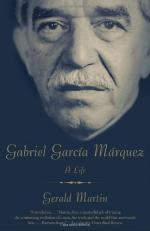|
This section contains 1,368 words (approx. 5 pages at 300 words per page) |

|
SOURCE: Wood, Michael. “A Bitter Fairyland.” Times Literary Supplement, no. 4617 (27 September 1991): 26.
In the following review of Collected Stories, Wood delineates the differences between García Márquez's short fiction and his novels.
Walter Benjamin distinguished between stories and novels on the basis not of length or subject or style but of a projected relation to experience. The novel, even if read aloud, is centred on the solitude of the book, offers rich pictures of the “profound perplexity of living”. The novelist is “uncounseled, and cannot counsel others”. The storyteller, even if working in print, remembers and recreates a world of spoken connections, and “has counsel” for his or her readers. Benjamin notes—he is writing in 1936—that the idea of having counsel has “an old-fashioned ring”, but makes clear that counsel is not a separable moral or a lesson: “counsel is less an answer to a question than...
|
This section contains 1,368 words (approx. 5 pages at 300 words per page) |

|


